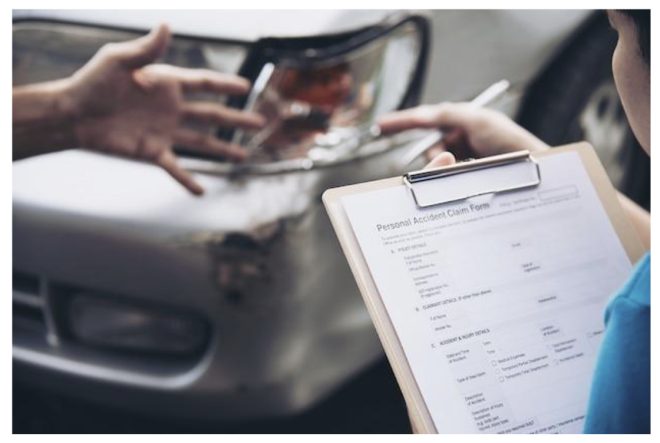- Change theme
Are Car Accident Claims Simple Enough to Handle on Your Own?

There’s nothing routine about a car accident, not in the moments after it happens, and certainly not in the days or weeks that follow.
09:48 29 April 2025
There’s nothing routine about a car accident, not in the moments after it happens, and certainly not in the days or weeks that follow. For anyone who’s ever found themselves exchanging insurance details at the side of a road, shaking slightly from the adrenaline or pain, you’ll know what we mean. The crash is just the beginning.
What happens next often spirals into a confusing maze of insurance calls, medical bills, time off work, and uncertainty.
And somewhere in the middle of that, you might sometimes wonder if you can handle this alone, or perhaps you would need the services of knowledgeable car accident lawyers at Adamson Ahdoot LLP. After all, they’ve seen it all and actually know how to make the messy stuff way less stressful.
When Handling a Car Accident Claim on Your Own Might Be Okay
There are rare situations where you can manage the claim without legal help. We’re talking about scenarios where:
- There are no injuries
- The damage to the vehicle is minimal
- Liability is 100% clear and uncontested
- The other driver admits fault
- You’re comfortable negotiating with the insurance company
Say you’re parked, and someone nudges your rear bumper. No injuries, just a tiny dent, and the other driver apologizes and gives you their details. You might be able to file a claim, get the repair covered, and move on with your life.
In these cases, the process is relatively straightforward. But as you’ve probably guessed, not every crash is this clean.
Why Most Car Accident Claims Are Not So Simple
Most accidents aren’t just about bent fenders and scratched paint. They involve deeper issues, delayed injuries, contested fault, or tricky insurance adjusters who aren’t eager to pay.
Sometimes the pain doesn’t show up right away. That little twinge in your back might feel like a minor ache until it turns into weeks of physical therapy and missed work. What starts as a simple claim can quickly snowball into a financial nightmare, especially if you’ve already accepted a small settlement.
Once you take that money, it’s over. You can’t reopen the case, even if your pain gets worse or your car needs more repairs than expected. That’s the trap a lot of people fall into.
The Risks of Handling Your Own Personal Injury Claim
There’s a reason insurance companies don’t want you to have legal representation—because they know you’re vulnerable without it.
On your own, you might undervalue your injuries. You might not know how to calculate long-term costs like future medical bills or missed wages. And you definitely won’t have the same negotiating power as someone who does this for a living.
Insurance adjusters are trained to sound friendly while protecting their company’s bottom line. They may ask for a recorded statement and use your words against you later. They may delay responses, hoping you’ll just settle and go away. Without someone protecting your side of the story, it’s easy to feel overwhelmed and get lowballed.
What a Personal Injury Lawyer Actually Does for You
A good lawyer isn’t just someone who files papers or shows up in court. They’re your personal investigator, negotiator, and advocate, all rolled into one.
They look at your case from every angle. They gather evidence, speak to witnesses, review camera footage, and work with doctors to understand your injuries. Then they build your case like a fortress, strong enough to hold up against the insurance company’s tactics.
Most importantly, they know what your case is really worth. They know how to demand compensation for things you might not think to include, like lost earning potential, emotional distress, and long-term medical care. And they don’t back down when adjusters try to cut corners or delay the process.
You don’t pay them upfront. Most personal injury lawyers work on contingency, which means they only get paid if you win. That means no out-of-pocket costs and no risk of wasting money on a dead-end case.
Simply put, you only get one shot at getting compensation for your losses, so it makes the most sense to hire a lawyer who significantly increases your chances of getting maximum compensation.
